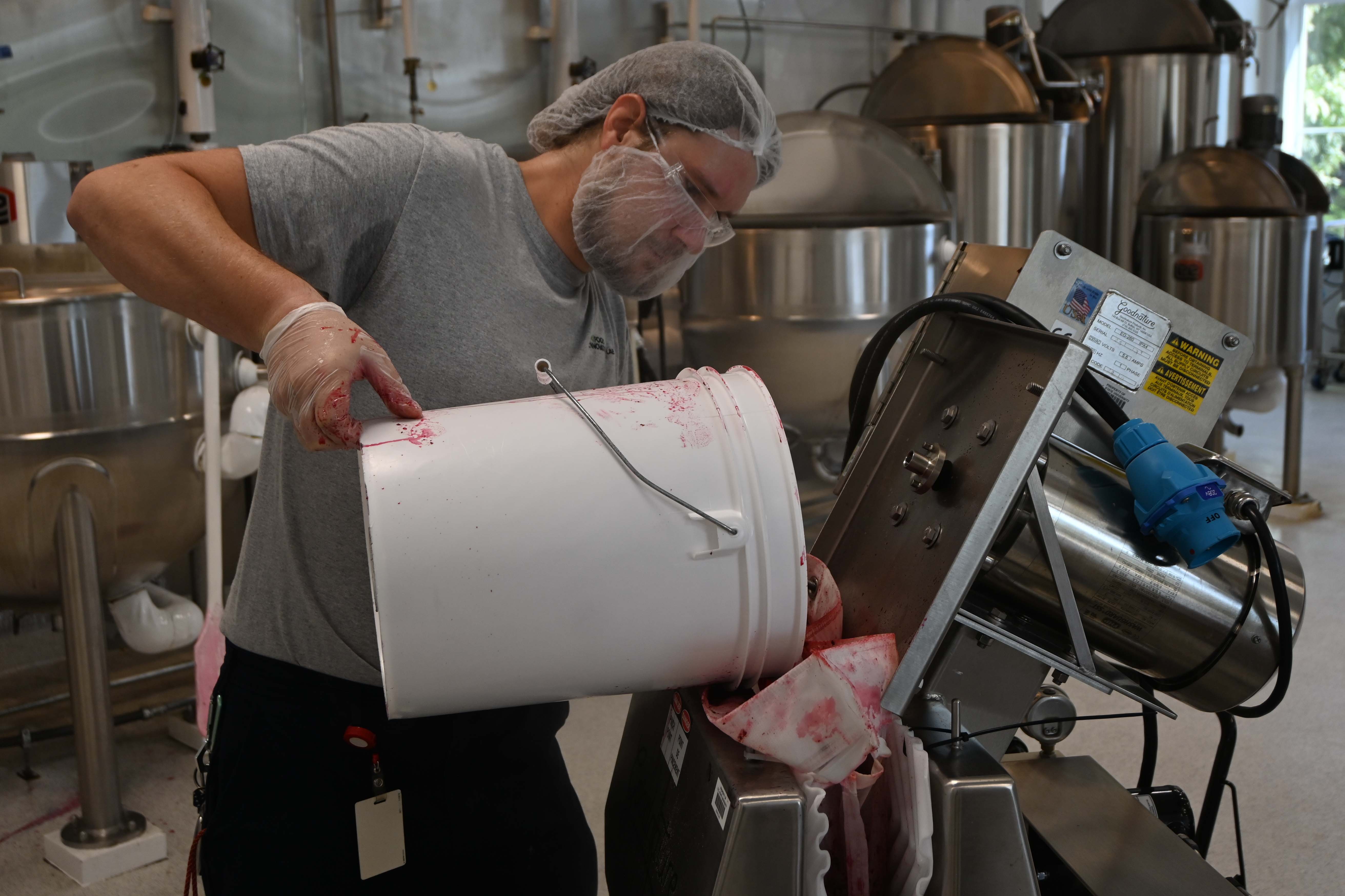Heart-smart: Food choices can help prevent and control cardiac disease
Published 12:00 am Tuesday, February 25, 2014
First of two parts. Next week’s article is on heart-healthy choices when dining out
By Gail Poulton
For the Salisbury Post
Hard on the heels of January, here’s American Heart Month, just in time to rescue your crumbling New Year’s resolutions. Whether your goal is to push away from the table sooner, dump the junk food or get better acquainted with the produce section, February offers a do-over for your heart’s sake.
It can be hard to stay on track with dietary changes, according to Toi Degree, family and consumer education agent with the Rowan County Center of the North Carolina Cooperative Extension.
“It’s easy to get started, but after time passes people find it harder to continue and may ‘fall off the wagon’ for a time” Degree says. “This often happens when you are starting anything new and making changes.”
That’s because the hardest thing to change for most people is their routine. They have been eating the same way for so long that it’s a habit, explains Wendy NaPant, who teaches heart- healthy cooking classes at Rufty-Holmes Senior Center. “What I find that works best for change is to attend my cooking classes or other classes and see how to simplify change.”
Fortunately, people have more choices than ever when it comes to shopping for healthy food and preparing it. We also now know a lot more about which foods can help protect us against heart disease — and which ones may actually promote it.
As a first step to a healthy diet, take a self-inventory, advises Degree. “Take a look at your habits and things you can change for the sake of your health.” She also recommends looking through your kitchen cabinets and reading nutrition labels to see what you are eating and what’s in it.
“Look at food labels to see how much sodium and fat is in the food in your cabinets. In most cases you will want to eat fewer processed foods because they are higher in fat and sodium.”
While saturated fat has topped the list of bad-guy foods for a long time, sugar is rapidly gaining a similar reputation. Sugary foods and sugary drinks often pile on more calories than you can burn in one day. Besides adding calories, consuming too much sugar actually increases your chance of dying of heart disease, according to new research published earlier this month online by the journal JAMA Internal Medicine.
“The risk of cardiovascular disease death increases exponentially as you increase your consumption of added sugar,” says Quanhe Yang, one of the study’s authors and a senior scientist at the U.S. Centers for Disease Control and Prevention. The average amount of sugar Americans consume daily boosts their risk of heart-related death by nearly 20 percent, according to researchers.
Most U.S. adults get about 300 calories a day from added sugar. That’s about 15 percent of their daily calories. But it’s not unusual for teenagers and many adults to get 25 percent of their calories from sugar. Those who consume that much sugar are twice as likely to die from heart disease as people who limit sugar to less than 10 percent of total calories a day.
The American Heart Association advises that people drink no more than 36 ounces a week of sugary beverages like soda and sweetened tea. One 12-ounce can of a regular soda packs about 140 calories, or nine teaspoons of sugar. Some health experts suggest that sugar should make up no more that 15 percent of your total calories in a day.
On the bright side, evidence is accumulating that a diet rich in fish, nuts, vegetables and fruits is good not only for your heart, but also for your weight and general health. Known as the Mediterranean diet, this healthy eating style also limits high-fat dairy products and refined grains, as well as sugar. New research published earlier this month shows that the more closely you stick to a diet like this, the lower your risk of developing heart trouble.
A good first step to a healthier diet is changing your mindset and then changing your diet, NaPant tells her cooking class participants. Making small changes can make the process more doable.
Start by eating a wide variety of fruits and vegetables. A heart-healthy diet should include four to five cups of fruits and vegetables daily. Aim for making half your grains whole, with three one-ounce servings of whole grains every day.
For protein, focus on non-meat foods like dried beans, peas, lentils or tofu. Eat at least four servings of nuts weekly. Mixed nuts are a good choice because they offer a variety of nutrients and healthy fatty acids.
If you eat meat, choose light meat, skinless poultry, lean cuts of beef and pork and fish. The AHA recommends at least two servings a week of fish — baked, broiled, sautéed, poached or grilled – but not fried.
Other AHA guidelines: Limit sodium (salt) to less than 1,500 mg a day — most Americans eat more than twice that amount; eat no more than two servings of processed meat a week, and hold the amount of saturated fat you eat to less than 7 percent of your daily calories. Saturated fat comes mainly from meat, as well as whole-milk dairy products.
Want to learn more about how to eat heart smart? Healthy-eating experts will be presenting workshops and classes in the upcoming months here in Salisbury.
NaPant, a holistic health coach trained at the Institute of Integrative Nutrition, teaches healthy cooking classes at Rufty-Holmes Senior Center. Cost is $12 and you don’t need to be a center member to participate. Call RHSC at 704-216-7714 for more information or to sign up. Contact NaPant through her website, www.letstalkgoodfood.com, email her at wendy@letstalkgoodfood.com or find her on Facebook.
Degree has an upcoming cooking school in April. Reach her at Toi_Degree@NCSU.edu, or 704-216-8979. The Rowan County Cooperative Extension’s website is http://rowan.ces.ncsu.edu/.
For online help planning and learning to cook healthier meals, check out www.choosemyplate.gov, a website from the U.S. Department of Agriculture (USDA).
You can also get lots of ideas, recipes, and advice from the Academy of Nutrition and Dietetics website www.eatright.org and the American Heart Association at www.heart.org. The CDC website, www.cdc.gov and the federal website www.healthfinder.gov also both offer information and tips on heart health as well as diet.
Gail Poulton teaches classes on managing chronic disease and is a fitness instructor/trainer in Salisbury. Contact her at gailpoulton@bellsouth.com.






